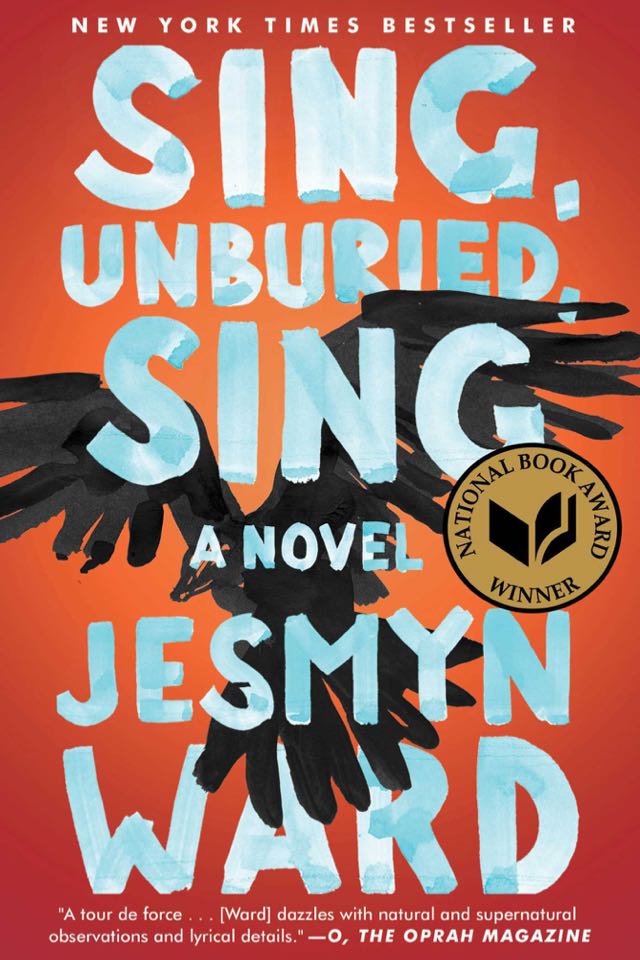Sing, Unburied, Sing
— Nicholas Nichols
“Time never stops, but does it end?”
— Tracy K. Smith
Jesmyn Ward is more Shelley than Faulkner this time around. Ward writes as if each word is a volt of electricity resurrecting a forgotten history. She revives the beast of America’s past, and allows the grotesque creature to walk among us, to tell us its story, to tell us of its life. Sing, Unburied, Sing is an American tragedy with the accent of a ghost tale.

The book is home to a diverse cast of characters, many of whom resemble people you’ve cried, laughed and mourned with. Ward knows the limit by which we hold the ones closest to us safely away from danger, but she lets them go to show us what truly happens. Time and time again I was left in awe, not by the subtle character development, poetic language, precise prose or beautiful imagery, but by the faith in these characters to do the labor. I cheered at moments with full tears in my eyes and I saw the ghosts of characters in the people I love. Rarely do I forget that I’m reading a story, but I was so immersed in Ward’s tale I wished to save many of the characters from themselves, sometimes pleading to the page that they just walk away.
The first line of the book belongs to Jojo, a 14 year old boy of mixed heritage, “I like to think I know what death is.” By this point we should know that Ward isn’t sparing our feelings. Jojo, both smart and observant, is a necessary voice to provide clarity to a story so reeked with loss. Sometimes I forget the cost of being a Black child in this country until I hear Jojo speak; it’s not death but the living that’s the real struggle. We’re met with a divided family each trying to live their own way, learning to trust one another as they grow.
At this point of the review I wanted to draw attention to the similarity of Black death in America and the fable it makes of us all, but I need a date. When did the fable start? Who was the first of the unburied? In what key was their life extinguished in? I think of German philosopher Theodor Adorno who was once quoted saying, “There can be no poetry after Auschwitz.” Adorno retracted the statement, but what can be said about relationship between art and trauma. Is all art reactionary to some unsaid wrong? In the case of Sing, Unburied, Sing it acts as a means to conceptualize pain where we hardly hear the voice of so many victims of institutional racism within America.
Sing, Unburied, Sing is an immersive novel filled with characters that will challenge their readers’ ability to let go and just be a witness. There are moments that the novel makes it very clear how things will turn out, but I believe that due to Ward’s strengths the reader sticks around to see the journey through. If you are looking for a fresh take on race in the American South, with a twist of speculative fiction, then look no further.